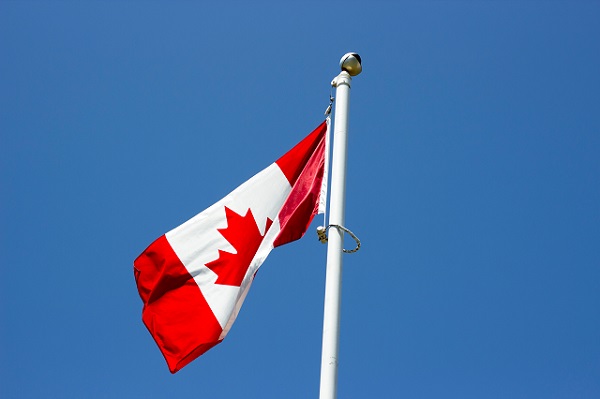Alberta
Alberta to focus on seniors residences, Increase support for caregivers – COVID update

From the Province of Alberta
Update 32: COVID-19 pandemic in Alberta (April 14 at 5:30 p.m.)
There are now 914 confirmed recovered cases of COVID-19 in the province.
With 138 new cases reported, the total number of cases in Alberta is 1,870.
Two Albertans have died since the last report, bringing the total deaths in the province to 48.
Latest updates
- Increased funding is being provided for Alberta caregivers to expand supports and resources.
- Military families needing child care will now be able to access reopened child care centres.
- Cases have been identified in all zones across the province:
- 1,242 cases in the Calgary zone
- 402 cases in the Edmonton zone
- 107 cases in the North zone
- 74 cases in the Central zone
- 36 cases in the South zone
- Nine cases in zones yet to be confirmed
- Of these cases, there are currently 44 people in hospital, 14 of whom have been admitted to intensive care units (ICU).
- 276 cases are suspected of being community acquired.
- A total of 33 people have died in the Calgary zone, eight people have died in the Edmonton zone, six people have died in the North zone, and one person has died in the Central zone.
- One of the recent deaths was at McKenzie Towne Continuing Care Centre in Calgary and the other was at Shepherd’s Care Kensington in Edmonton.
- Stronger outbreak measures have been put in place at continuing care facilities. To date, 214 cases have been confirmed at these facilities, with a total of 30 deaths.
- There have been 79,695 people tested for COVID-19 and a total of 82,649 tests performed by the lab. There were 2,868 tests completed in the last 24 hours.
- Any individual exhibiting symptoms of COVID-19 including cough, fever, runny nose, sore throat or shortness of breath, is now eligible for testing. People can access testing by completing the COVID-19 self-assessment online. A separate self-assessment tool is available for health-care and shelter workers, enforcement and first responders.
- Effective April 15, continuing care workers will be required to wear masks at all times when providing direct patient care or working in patient care areas.
- Starting April 16, workers in long-term care and designated supportive living sites will only be allowed to work at one location. This requirement must be fully implemented no later than April 23.
Continuous masking in health-care settings
More than 1.5 million masks have been shipped to 941 long-term care facilities, designated supportive living facilities, and addiction and mental health facilities across the province to support Alberta Health Services’ (AHS) Guidelines for Continuous Masking in Healthcare settings. AHS has also shipped and increased stock of four million masks to all AHS, Covenant Health, and subsidiary facilities. This week, 1,470 pharmacies will receive a total of 147,000 masks and 2.4 million gloves.
Increased supports for Alberta caregivers
The Alberta government is providing $3 million to Caregivers Alberta, a non-profit organization, to expand supports and resources for caregivers during the COVID-19 pandemic and into the future.
Psychosocial, along with other peer and community supports, are currently available through the toll-free caregiver advisor line at 1-877-453-5088 and online at caregiversalberta.ca for all caregivers, including those caring for someone with COVID-19 or in self-isolation.
Access to justice
The Provincial Court of Alberta has clarified its process regarding the criminal fine payment extension. For more information: https://albertacourts.ca/pc/resources/announcements.
Child care for military families
Military families needing child care will now be able to access reopened child care centres. Military personnel were originally not included in the list of provincial workers who can access child care, as they are overseen by the federal government.
The Alberta government is ensuring child care is not a barrier for military families so they can continue their essential work supporting, protecting and keeping Albertans safe.
Reducing spring wildfires and protecting municipalities
Alberta Wildfire is hiring 200 additional firefighters, invoking a fire ban in in the Forest Protection Area, implementing off-highway vehicle (OHV) restrictions on Crown land in the Forest Protection Area, increasing fine violations and funding $20 million more in community FireSmart initiatives to prepare for the upcoming wildfire season during COVID-19.
Alberta Parks is also implementing a fire ban in parks and protected areas. These early preparedness measures will ensure the province can effectively focus resources where they are needed most in the event of multiple emergencies happening at the same time.
For more information on wildfires, download the Alberta Wildfire app. Up-to-date information on fire restrictions, fire bans, OHV restrictions and general wildfire information is available at albertafirebans.ca or by calling 1-866-FYI-FIRE (1-866-394-3473). To report a wildfire, call 310-FIRE (310-3473) toll-free, from anywhere in Alberta.
Road tests
Alberta is extending the suspension of road tests until the public health emergency ends and while procedures are developed to conduct road tests that prevent against the spread of COVID-19.
Road tests will resume when it is safe to do so. Albertans who have a road test cancelled as a result of this suspension of service will be able to rebook online once the public health emergency ends or later, at no additional charge.
Mental health supports
Confidential supports are available to help with mental health concerns. The Mental Health Help Line at 1-877-303-2642 and the Addiction Help Line at 1-866-332-2322 are available between 7 a.m. and 11 p.m., seven days a week. Online resources provide advice on handling stressful situations or ways to talk with children.
Family violence prevention
A 24-hour Family Violence Information Line is available at 310-1818 to get anonymous help.
Alberta’s One Line for Sexual Violence is available at 1-866-402-8000, from 9 a.m. to 9 p.m., in more than 170 languages.
Information sheets and other resources on family violence prevention are available at alberta.ca/COVID19.
Quick facts
- The most important measures that Albertans can take to prevent respiratory illnesses, including COVID-19, is to practise good hygiene.
- This includes cleaning your hands regularly for at least 20 seconds, avoiding touching your face, coughing or sneezing into your elbow or sleeve, and disposing of tissues appropriately.
- Anyone who has health concerns or is experiencing symptoms of COVID-19 should complete an online COVID-19 self-assessment.
- For recommendations on protecting yourself and your community, visit alberta.ca/COVID19.
Increased supports for Alberta caregivers
Government is providing $3 million to Caregivers Alberta to expand supports for caregivers during the COVID-19 pandemic and into the future.
Funding to the non-profit organization will help expand support programs and resources for the almost one million Albertans who are caregivers for family and friends, and ensure the many dedicated Albertans caring for their loved ones at home or in the community have access to the supports they need to maintain their well-being.
“Caregivers are essential to the well-being and quality of life of over one million Albertans. This is particularly true as we deal with the COVID-19 pandemic. Funding to increase supports for caregivers is part of our government’s commitment to ensure that all Albertans are taken care of – during the COVID-19 pandemic and beyond.”
Caregivers Alberta is the only community organization in Alberta dedicated to the diverse needs of all Alberta caregivers. Funding will help Caregivers Alberta expand supports and increase the reach of these supports so more Albertans can benefit. Supports include:
- Developing a public awareness campaign to highlight the importance of caregivers and their work.
- Compiling an inventory of caregiver supports across the province.
- Expanding the hours of the Caregiver Advisor phone line.
- Establishing a referral system to link caregivers and Caregivers Alberta through health-care providers.
- Updating and expanding support programs.
- Providing employers with resources to support caregivers in the workplace.
- Developing a coaching program for caregivers.
“Developing effective caregiver supports so Albertans can age well in their homes and communities is a priority for our government. This funding will make a big difference in the lives of many Albertans and I look forward to seeing the positive impact these additional supports will have on the lives of caregivers and those of their loved ones.”
“Without family and friend caregivers, our health-care system would simply collapse – especially during the COVID-19 pandemic. This funding will help support the almost one million caregivers across the province with caregiver-focused programs and services.”
Psychosocial, along with other peer and community supports, are currently available through the toll-free caregiver advisor line at 1-877-453-5088 and online at caregiversalberta.ca for all caregivers, including those caring for someone with COVID-19 or in self-isolation. Medical concerns or questions about COVID-19 or how best to care for someone with COVID-19, are best directed to Alberta Health Services’ Health Link at 811. For up-to-date information on COVID-19 and tips on how to reduce your risk, visit Help prevent the spread.
Alberta has a comprehensive response to COVID-19 including measures to enhance social distancing, screening and testing. Financial supports are helping Alberta families and businesses.
Alberta
Former senior financial advisor charged with embezzling millions from Red Deer area residents

News release from Alberta RCMP
Former senior financial advisor charged for misappropriating nearly $5 million from clients
On April 4, 2024, the RCMP’s Provincial Financial Crime Team charged a Calgary resident for fraud-related offences after embezzling millions of dollars from his clients while serving as a senior financial advisor.
Following a thorough investigation, the accused is alleged to have fraudulently withdrawn funds from client accounts and deposited them into bank accounts he personally controlled. A total of sixteen victims were identified in the Red Deer area and suffered a combined loss of nearly $5 million.
Marc St. Pierre, 52, a resident of Calgary, was arrested and charged with:
- Fraud over $5,000 contrary to section 380(1)(a) of the Criminal Code; and,
- Theft over $5,000 contrary to section 344(a) of the Criminal Code.
St. Pierre is scheduled to appear in Red Deer Provincial Court on May 14, 2024.
“The ability for financial advisors to leverage their position to conduct frauds and investment scams represents a significant risk to the integrity of Alberta’s financial institutions. The investigation serves as an important reminder for all banking clients to regularly check their accounts for any suspicious activity and to report it to their bank’s fraud prevention team.”
- Sgt. John Lamming, Provincial Financial Crime Team
The Provincial Financial Crime Team is a specialized unit that conducts investigations relating to multi-jurisdictional serious fraud, investments scams and corruption.
Alberta
Political parties will be part of municipal elections in Edmonton and Calgary pilot projects

Strengthening Alberta’s local elections
Alberta’s government is introducing legislation to ensure Albertans can rely on transparent, free and fair elections, and municipally-elected officials have clearer accountability measures.
In a democratic society, Albertans expect their local elections to be free and fair, and their elected officials to be held to account by clear rules that govern their local councils. The Municipal Affairs Statutes Amendment Act proposes amendments to the Local Authorities Election Act (LAEA) and the Municipal Government Act (MGA) to add greater transparency to local election processes and ensure local councils and elected officials continue to remain accountable to the citizens who elected them.
“Our government is committed to strengthening Albertans’ trust in their local governments and the democratic process that elects local leaders. The changes we are making increase transparency for Alberta voters and provide surety their votes will be counted accurately. We know how important local democracy is to Albertans, and we will work with local authorities to protect and enhance the integrity of local elections.”
Local Authorities Election Act
Albertans expect free and fair elections and that’s why it’s important we strengthen the rules that govern local elections. To strengthen public trust in local elections, Alberta’s government will eliminate the use of electronic tabulators and other automated voting machines. All Albertans should be able to trust the methods and results of local elections; requiring all ballots to be counted by hand, clarifying rules and streamlining processes for scrutineers will provide voters greater assurance in the integrity of the results.
All eligible Albertans should be able to vote in local elections without impediment. Alberta’s government will limit the barriers for eligible voters to cast a ballot by expanding the use of special ballots. Currently, special ballots can only be requested for very specific reasons, including physical disability, absence from the municipality, or for municipal election workers. By expanding the use of special ballots, the government is encouraging more voter participation.
Amendments in the Municipal Affairs Statutes Amendment Act would increase transparency in local elections by enabling political parties at the local level. Political parties would be enabled in a pilot project for Edmonton and Calgary. The act will not require candidates to join a political party in order to run for a local or municipal office, but will create the opportunity to do so.
In addition, proposed changes to the Local Authorities Election Act would allow municipalities the option to require criminal record checks for local candidates, thus increasing transparency and trust in candidates who may go on to become elected officials.
Municipal Government Act
The role of an elected official is one with tremendous responsibility and expectations. Changes proposed to the Municipal Government Act (MGA) will strengthen the accountability of locally elected officials and councils. These include requiring mandatory orientation training for councillors, allowing elected officials to recuse themselves for real or perceived conflicts of interest without third-party review and requiring a councillor’s seat to become vacant upon disqualification.
If passed, the Municipal Affairs Statutes Amendment Act will also unlock new tools to build affordable and attainable housing across Alberta. Proposed amendments under the MGA would also create more options for municipalities to accelerate housing developments in their communities. Options include:
- Exempting non-profit, subsidized affordable housing from both municipal and education property taxes;
- Requiring municipalities to offer digital participation for public hearings about planning and development, and restricting municipalities from holding extra public hearings that are not already required by legislation; and
- Enabling municipalities to offer multi-year residential property tax exemptions.
Municipal Affairs will engage municipalities and other partners over the coming months to hear perspectives and gather feedback to help develop regulations.
Quick facts
- The LAEA establishes the framework for the conduct of elections in Alberta municipalities, school divisions, irrigation districts and Metis Settlements.
- The MGA establishes the rules governing the conduct of local elected officials once on council, as well as the overall administration and operation of municipal authorities in Alberta, including any policy those authorities may wish to implement.
Related information
-

 Alberta2 days ago
Alberta2 days agoRed Deer Doctor critical of Alberta’s COVID response to submit report to Danielle Smith this May
-

 Business1 day ago
Business1 day agoDon’t be fooled by high-speed rail
-

 Alberta1 day ago
Alberta1 day agoActivity-Based Hospital Funding in Alberta: Insights from Quebec and Australia
-

 Business1 day ago
Business1 day agoUN plastics plans are unscientific and unrealistic
-

 Business1 day ago
Business1 day agoTaxpayers criticize Trudeau and Ford for Honda deal
-

 Fraser Institute1 day ago
Fraser Institute1 day agoCanadians should decide what to do with their money—not politicians and bureaucrats
-

 Addictions1 day ago
Addictions1 day agoBritish Columbia should allow addicts to possess even more drugs, federal report suggests
-

 Alberta23 hours ago
Alberta23 hours agoAlberta official reveals ‘almost all’ wildfires in province this year have been started by humans








